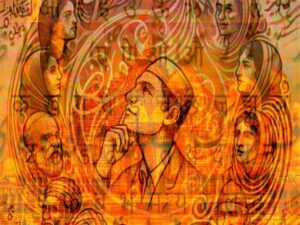China is destroying Tibetan identity, language and culture: UN report
Lhasa [Tibet], March 5 (ANI): A report by human rights experts of the United Nations on the eve of International Language Day on February 21 unmasked the real nature of oppression on Tibetans practised by the Communist Party of China (CCP) in the form of forced assimilation of Tibetan identity into the dominant Han Chinese identity, the Tibetan Press reported.
The report by UN human rights experts, released in Geneva on February 6, 2023, talks about a million Tibetan children who have been separated from their families by the Chinese authorities and placed in government-run boarding schools.
“We are alarmed by what appears to be a policy of forced assimilation of the Tibetan identity into the dominant Han-Chinese majority through a series of oppressive actions against Tibetan educational religious, and linguistic institutions,” the experts say in their report.
The Chinese rulers in Tibet are using the residential schooling system as a ploy to assimilate Tibetan people culturally, religiously and linguistically with the Han identity.
“We are very disturbed that in recent years the residential school system for Tibetan children appears to act as a mandatory large-scale programme intended to assimilate Tibetans into majority Han culture, contrary to international human rights standards,” the experts have said in a statement.
In these residential schools, the educational content and the environment are built around the majority Han culture, with contexts in textbooks reflecting almost solely the experiences Han students face in the course of their lives. Tibetan children are forced to complete a “compulsory education curriculum in Mandarin Chinese (Putonghua, standard Chinese) without access to learning relevant Tibetan traditions and culture.
These schools do not provide many studies in the language, history and culture of the Tibetans, as a result, Tibetan children are losing fluency in their own language and the ability to communicate easily with their parents and grandparents in the Tibetan language, leading to their assimilation with the Han Chinese identity and the erosion of their own identity.
The report of the experts indicates that the promotion of these residential schools in Tibet is part of a Chinese conspiracy to destroy Tibetan identity and culture. Such residential schools have mushroomed in and outside the Tibet Autonomous Region, with the large majority of Tibetan children studying in them; and their number is increasing.
At the national level in China, the share of students studying in boarding schools is a much lower percentage.
The communist rulers of China are keen to destroy the culture and language of the Tibetans and the Tibetan way of life because they think that is the only way Tibetans can be weaned away from their deep faith in Buddhism. For the intolerant rulers of China, religious belief of any kind is like a red rag to a bull, the Tibetan Press reported.
Buddhism is inseparable from the Tibetan language, culture and way of life.
The mark of Buddhism on the Tibetan way of life is found from the birth to the death of an individual. When a child is born, his parents celebrate his birth by making offerings to Lord Buddha and monks and distributing food to the poor. Lamas are invited to perform religious services in houses where a child is born. The second child of the family is usually sent to the monastery to become a monk.
When the Chinese army invaded Tibet in 1950, they found Buddhism to be the force unifying all Tibetans and the Dalai Lama was the symbol of this unity. The Chinese rulers systematically dismantled the Buddhist religion by targeting the monks.
A large number of monasteries in Tibet were completely destroyed. The Dalai Lama fled to India in 1959, along with a large number of Tibetans. Till recently, about 150 monks in Tibet have courted death by self-immolation in protest against the attack on their religion, the Tibetan Press reported.
Scholars have noted the Chinese contempt for non-Chinese culture. To the Chinese government. Tibetan Buddhism is a threat to its rule and a challenge to its goal of colonizing Tibet, writes the website of Free Tibet, an organization of Tibetan refugees.
Undermining and eliminating the unique practices of Tibetan Buddhism is central to the policy of the Chinese government of eradicating Tibetan resistance to its rule. Every single aspect of Tibetan Buddhism is subject to intrusive state interference.
Having failed to wean the Tibetan people away from the Buddhist faith after more than 70 years of illegal occupation of Tibet, mandarins of the CPC have floated the idea of Buddhism with Chinese characteristics.
The real intention behind this idea is to interfere in the process of choice of the next Dalai Lama and foist on the Tibetan people a Dalai Lama of their own choice.






